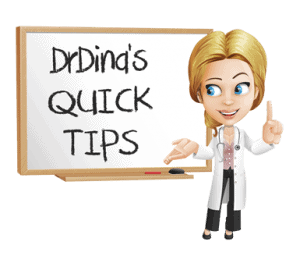When Do Babies Walk? Tips For Getting Your Baby To Start Walking
One of the most exciting phases of your baby’s development is when they start walking. At what age do babies walk? This stage can happen anywhere from 9-18 months depending on the child. It’s important to remember that each child develops at their own pace, but if you are eager to help your little one find their footing, here are some easy at home exercises to help build balance and stability:
Vertical Challenge
Standing with support at a vertical surface (e.g., a wall) is more challenging for a child than standing with their body leaning on a horizontal surface (e.g., couch or coffee table). When your child is practicing standing, encourage them to play at the window, mirror, or fridge instead of always at the couch.
Slippery Stance
To progress their standing skills, add a challenge to standing at a vertical surface. One of my favorite physio expressions that I use is – “stability before mobility!’ Most babies will stand independently before they take those first steps. This exercise helps work on baby’s balance in standing in order to prepare the body to stand independently and then start to move.
Most babies will stand independently before they take those first steps.
Using a spray bottle of water, spritz the area around the hands while they are standing at a window or a mirror to make the surface slippery. Your baby will love sliding their hands through the cool wet areas, and will have to use different muscles in their body to stay standing. This can also be done standing at a fridge by sliding magnets up and down and side to side. Remember to stay close in case they lose their balance!
Living Room Locomotion
When your baby is standing at the couch or coffee table, encourage them to start to take steps sideways as they hold onto the horizontal surface. Place toys on the couch just out of reach (not too far so that they will go down and crawl, but not too close that they can reach without moving), and encourage them to go towards it. If you have an “L” shaped couch, place the toy on the side perpendicular to your baby to encourage more rotation in reaching. For an added challenge, place your baby at a couch and place toys at a coffee table (or ottoman). Gradually increase the distance between the couch and coffee table as your baby gets stronger.
Place toys on the couch just out of reach (not too far so that they will go down and crawl, but not too close that they can reach without moving), and encourage them to go towards it.
Cruise Control
If you’ve already got a cruiser, this one is for you. Your baby is so close to walking but just won’t let go of that couch! To give them a challenge, take some of the pillows or blankets down and place them on the floor where they would usually step. This makes baby have to walk on an unstable surface which helps them develop their balance reactions, helps them be more stable on their feet, and will make walking on the floor seem like a breeze.
When walking with your child with one hand held, hold their hand at their shoulder height or lower.
One Hand Walker
Your baby is a superstar when it comes to walking…so long as they are holding your hand. I’ll often hear from parents that their child is THIS CLOSE to walking because they can walk holding on to just their pinky, but they can’t seem to get them to let go. In almost all of these cases, the child is holding on to the parents’ hand with their arm held above their head (or close to it). In this position, your baby is using you for balance more than you might think. When walking with your child with one hand held, hold their hand at their shoulder height or lower. This will be a lot harder for both of you (I apologize for any back pain in advance!) but will be much better at promoting independent walking for your child and a lot safer for their shoulder.
Ping Pong Baby
Once your child seems like they are ready to take those first few steps, try encouraging some back and forth steps between two people that your little one loves to hug. When you place your baby in standing in front of you, make sure the person they are trying to walk towards is close enough so that your baby doesn’t want to go down and crawl to them, but far enough away that they won’t just “dive” and fall forwards. Play this game of ping pong back and forth, starting with encouraging 1-2 steps from your baby, and gradually going further apart.
Quick tips:
-
Independent walking happens between 9-18 months
-
Stability before mobility!
-
Stay close to your child when doing exercises
-
Speak with your doctor if your child is older than 18 months and not showing signs of walking
Curious about baby development by week?
Check out our developmental milestones chart
Should you use an exercauser?

Jennifer is a registered physiotherapist working in the field of paediatrics. She has worked with children of all ages, helping them to achieve their motor milestones through various therapeutic approaches. Jenn also has extensive experience working with infants with torticollis and plagiocephaly. As a new mom herself, she loves sharing her experiences and learning from others.











